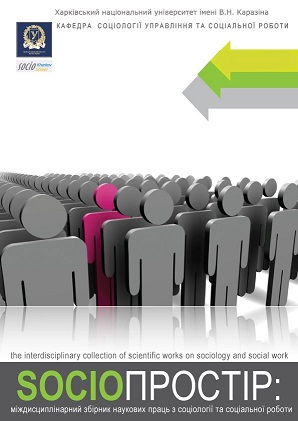Sustainable development at school: teaching the «5R» principle (on the example of the Zero Waste Kharkiv summer camp for children from the IDPS)
Abstract
Today's Ukraine is facing unprecedented environmental pollution caused by a full-scale invasion and military aggression. In addition to systematic work to reduce the impact of military operations on the environment, the issue of developing environmental awareness and adherence to environmental behavior to prevent or at least reduce environmental pollution is becoming even more urgent. Teaching environmental behavior to school-age children is particularly important and promising in this context. The article is devoted to the study of the practice of teaching the «5R» principle to children through interactive games, informal lectures and discussions. The «5R» principle is a comprehensive approach that aims to achieve environmental safety for modern society and future generations, that is why it must be learned in childhood. The principle itself is an element of the «zero waste» lifestyle, which was launched by a French eco-activist in the 2000s. The article examines the essence and components of the «5R» principle (refuse, reduse, reuse, recycle, rot), how this principle will contribute to sustainable development, and how this principle can be implemented in education. An example of the implementation of the 5R principle in education is the Kharkiv Zero Waste summer camp, which was organized for children from IDP families (from the de-occupied areas of Kharkiv region). The project was implemented by the Center for Civic and Media Initiatives (Zero Waste Kharkiv) with the support of Calidris and information support from the Ministry of Education and Science of Ukraine and the Ministry of Environmental Protection and Natural Resources of Ukraine. Out of the total number of 64 applications submitted, 13 participants were selected to participate in the project, including the Kharkiv team of the FUSILLI project. The article highlights successful camp practices, peculiarities of working with the target audience (in particular, the need to take into account the previous experience of children) and prospects for implementing the 5R principle not only during local events (such as camps), but also implementing the principle as a cross-cutting practice in the educational process.
Downloads
References
REFERENCES
DiyaBusiness. Goals of sustainable development. (2021). Retrieved from https://business.diia.gov.ua/handbook/sustainable-development-goals/cili-stalogo-rozvitku [in Ukrainian].
Bea Jonson (2013). Zero Waste Home: The Ultimate Guide to Simplifying Your Life by Reducing Your Waste. Simon and Schuster.

